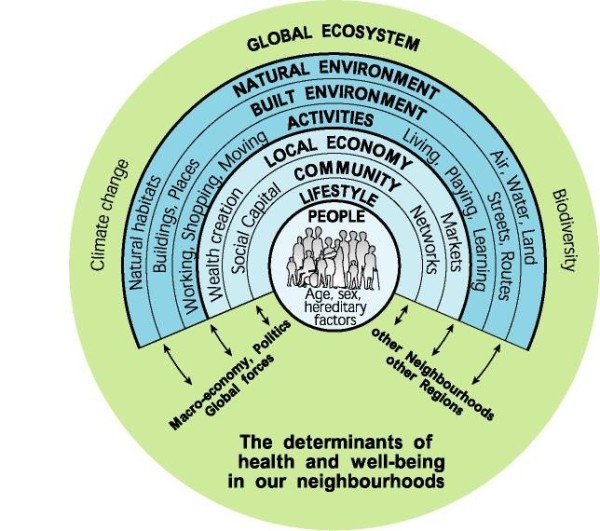Determinants of Health & Health Equity

Determinants of health are the circumstances in which people are born, grow up, live, learn, work and age. They are also the wider set of forces and systems affecting these circumstances, for example, economic and development policies, geographic and climatic environments, social norms, social policies and political systems.

A Health Map for the Local Human Habitat, Barton and Grant (2006) based on a public health concept by Dahlgren and Whitehead (1991).
Individually, we have little direct control over many health determinants. For example, the local economy affects employment opportunities, which in turn affects income, which influences the quality of housing and food we can afford. All of these things then affect the health and wellbeing of our whole family.
Income, employment, education and housing have considerable impacts on our health; much more than the delivery of health services. The level of educational achievement directly affects health outcomes. People who are socially and economically advantaged have better health outcomes than those living in poverty. These situations describe health inequity. Inequity is about unfair and avoidable differences between groups.
Health inequities are not about ‘making bad choices’, ‘bad genes’ or not accessing medical care. Health inequities usually stem from avoidable structural problems in our communities.
The challenge for all sectors is to work together to create fair and just policies and systems. Different inputs for different groups may be required in order to achieve equivalent outcomes, as shown in the diagram:
Find out more:
- Achieving equity - Health New Zealand
- Achieving equity - Ministry of Health
- Social determinants of health for health providers - Healthify
- Social determinants of health - World Health Organization






